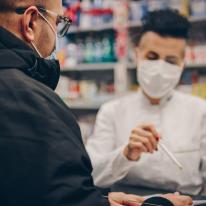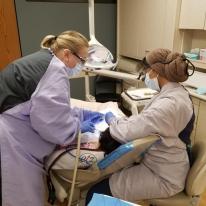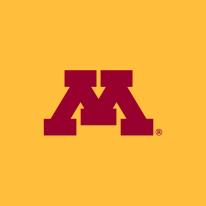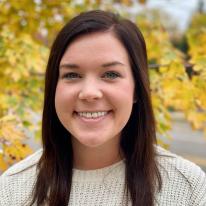Considered a relatively new field, the University of Minnesota was one of the earliest adopters of the science, with our Institute for Health Informatics (IHI) established in 1965. IHI continues to be one of the leaders of the field internationally, with research programs and experts at the forefront of many areas including artificial intelligence, and personalized and precision medicine. Its investigators, students, and staff work in collaborative teams to conduct foundational research that covers the spectrum from the theoretical properties of machine learning and artificial intelligence, to basic science research in cellular senescence, aging, longevity, COVID, and cancer to clinical trials. The common thread with all of their projects is the goal to improve the health of individuals and communities.
IHI’s graduate programs include an MS, an MHI, and a PhD program with four specialty tracks, and three dual degree and collaborative programs, plus 28 courses taken by hundreds of students annually from across U of M.
Please join me in supporting the IHI team as they continue to serve our research community by educating students and conducting research in the fields of biomedical and health informatics. They are a critical asset in our mission to strengthen the future of health and health care.

Driving Innovation and Discovery
Improving Patient Outcomes Through Pharmacist-Led Comprehensive Medication Management
Grant-funded work is underway to address transition of care for patients from the hospital to community setting at the Community-University Health Care Center and other federally-qualified health centers. “The goal is to implement comprehensive medication management as part of this transition so when patients go home and have questions, they have a pharmacist to support them,” said Joel Farley, PhD.

Join gpTRAC for the Region’s Telehealth Everywhere Conference
The Great Plains Telehealth Resource & Assistance Center is hosting a telehealth conference May 23-25 at Radisson Blu at the Mall of America. Programming includes presentations from leadership from the Institute for Health Informatics.
Advancing Interprofessional Education & Training
Graduate, professional, and upper-level undergraduate students who are interested in geriatrics are encouraged to participate in this fall’s Interprofessional Geriatric Case Competition. Students apply as individuals and will be assigned to an interprofessional team and develop a comprehensive, interprofessional plan of care for an older adult. Student teams will comprise of four to five students from at least three U of M schools.
“I enjoy working with students in different programs that I would otherwise never have the opportunity to collaborate with. I have also participated in research and work that only came to fruition because of the IPE program. Interprofessional activities have improved my learning by giving me a well-rounded perspective for patient cases rather than solely looking at them through a physical therapy lens. These experiences have also enhanced my communication and critical thinking skills, resulting in me digging deeper and asking more questions in my coursework and clinical experiences.” - Hannah Saalsaa, Division of Physical Therapy
Partnering with Communities

Minnesota Group Leads Effort in Dementia-Friendly Oral Health Care
Dementia is a growing concern. More than 6.5 million people are affected in the United States, with more than 100,000 in Minnesota. More strikingly, those numbers are expected to triple by 2050. A group featuring School of Dentistry expert Stephen Shuman, DDS, MS, director of the Oral Health Services for Older Adults Program, is working to ensure oral health providers and communities are prepared to provide care for those affected, including both patients and care partners.
U-Wide Events and Opportunities

Storytelling in Medicine: Powerful Ways to Connect, Empathize, and Heal
Join the May 18 M Health Fairview System Grand Rounds presentation led by Center for the Art of Medicine Directors Maren Olson, MD, MPH, MEd, and Ben Trappey, MD, and Associate Director Anthony Williams, MD.

Board of Regents Invite Comments on Proposed Operating Budget
The Board welcomes feedback from the University community on the proposed budget through written comments or participation at a public forum on May 13. Comments will be accepted until noon on Tuesday, May 31. Comments submitted through the online form will be included in the Board’s June meeting docket as part of the official public record.

Mindful Mondays: Free Drop-In Sessions
Join the Earl. E Bakken Center for Spirituality & Healing for an informal hour of gentle movement and guided meditation. Experienced instructors will guide you through a series of mindful movement and meditations that will leave you feeling rejuvenated. No prior experience or special clothing is necessary. Held live, online via Zoom.





